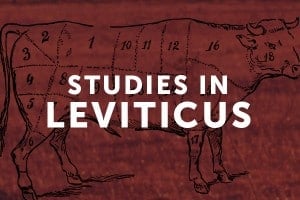⏱️ Estimated Reading Time: 2 min read
 Spiritual death has a physical component to it. The original curse issued by God in the Garden of Eden came with physical implications: hard labor, painful childbirth, and the promise of eventual “return to dust” (Gen. 3). Death, disease, and pain are reminders that man has been separated from God by virtue of sin. So, the Levitical laws about skin diseases, like the laws about bodily discharges, remind readers that they are constantly living under the curse of sin in this world.
Spiritual death has a physical component to it. The original curse issued by God in the Garden of Eden came with physical implications: hard labor, painful childbirth, and the promise of eventual “return to dust” (Gen. 3). Death, disease, and pain are reminders that man has been separated from God by virtue of sin. So, the Levitical laws about skin diseases, like the laws about bodily discharges, remind readers that they are constantly living under the curse of sin in this world.
The world itself is under the curse of sin. Both Genesis 3 and Romans 8 make this clear. Our environment impacts us, and so the Israelites were confronted with the reality that they may acquire all sorts of diseases that would make them ritually unclean. This is not the same as suggesting that the diseases themselves were a result of personal sin. The issue is not personal immorality, but ritual uncleanness. Again, I remind readers of what we have seen in previous posts: ritual cleanness has to do with wholeness and the avoidance of death, symbolic or literal. So, a person may not enter the sanctuary with any disease, for the presence of the disease represented a lack of wholeness and an association with death.
Leviticus, chapters 13 and 14, then, may be broken down to demonstrate both the problem and the provision. The problem, outlined in chapter 13, explains that “disease and decay are incompatible with the holiness of God” (see Allen Ross, Holiness to the Lord, 277). The presence of contamination, then, must be addressed both in the individual and in their lives – that is even their dwellings. The latter part of Leviticus 13 addresses mildew in the homes of the people. This too was unacceptable in God’s community, so it had to be addressed. Chapter 14 outlines the provision: God offers “healing and restoration through removal of defilement and reconsecration through atoning blood” (277).
Each case of contamination required a person to present themselves or their home to the priest to be evaluated. If they were assessed unclean then they were relegated to life outside the camp. If they were determined to be clean they needed to go through a proper cleansing ritual and offer an appropriate sacrifice to rededicate themselves to the Lord. The details themselves are pretty straight forward, even meticulous. The theological significance, however, warrants some discussion.


